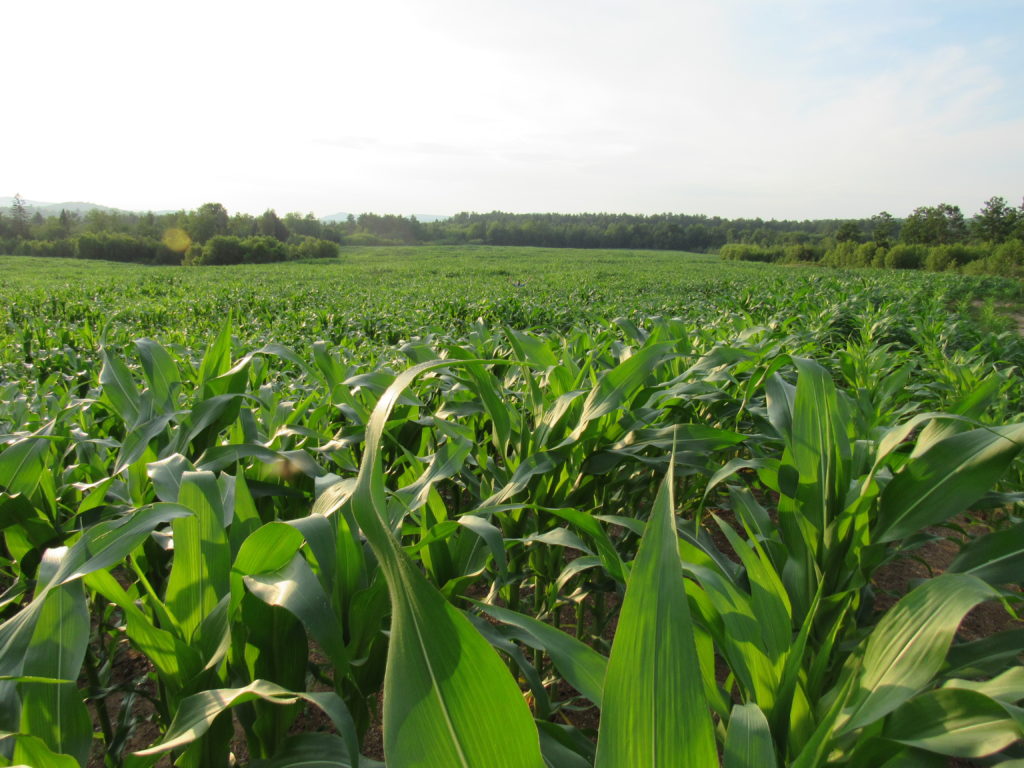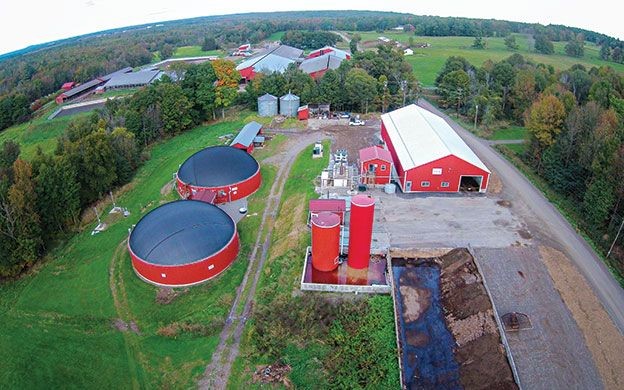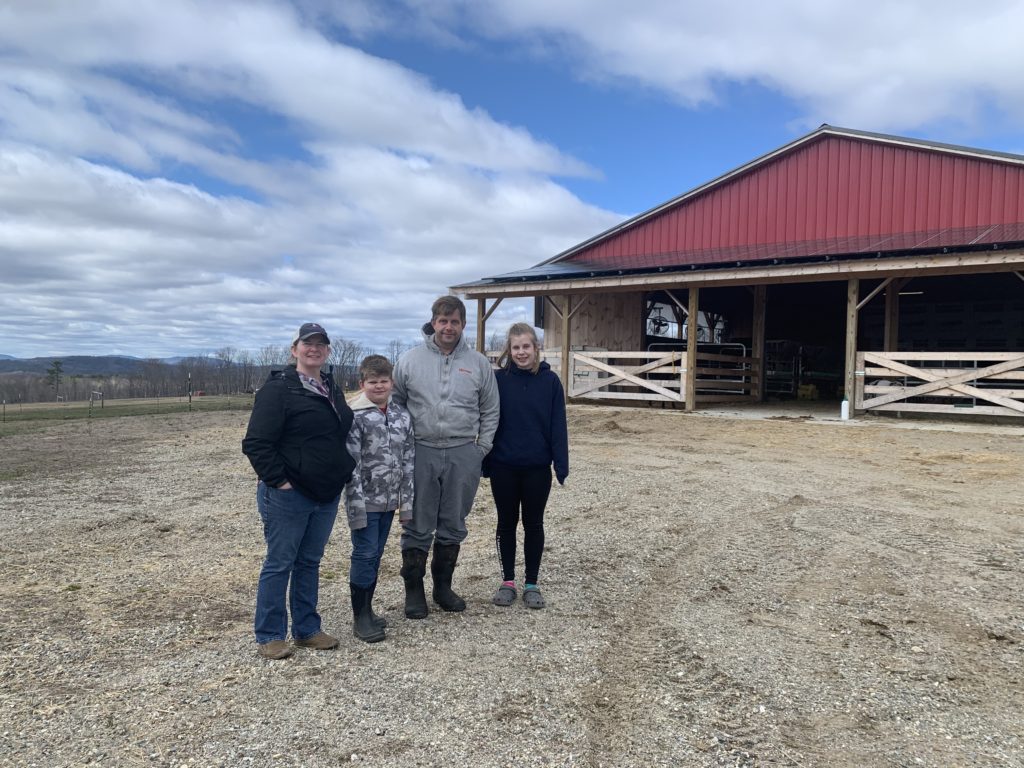Maine Dairies Forge Ahead to Combat Climate Change
When we think of a “dairy farm,” we may picture cows grazing in a field, or perhaps in a modern milking facility. But the world of dairy farming is changing as part of the global effort to combat climate change. In fact, the US dairy industry has committed to a goal of net-zero carbon emissions by 2050. Many Maine dairies are forging ahead in support of this effort locally.
Healthy Soil, Healthy Planet
“Everything we do as a farming community plays an integral role in mitigating environmental damage and climate change, benefits us all,” says Dana Lowell, of Lowell Family Farm in Buckfield. The Lowells make soil health a priority on their farm. Choosing to use no-till practices to grow crops, means they do not use machinery to till the soil each year prior to planting. Instead, they use a corn planter that disturbs a minimal amount of soil. They also plant a cover crop after harvesting their fields, diminishing erosion and adding nutrients back to the soil.
“Using no-till disturbs the soil as little as possible You’re leaving the carbon in the soil,” Dana explains. “Carbon is ‘organic matter.’ The more organic matter you have in that soil, the better the soil and the better the plants. It is better for the environment because it mitigates nutrient run-off and erosion. Plus that organic matter that is working day and night for the farmer is also keeping carbon out of the air.”

Food Waste Reduction

The Fogler family at Stonyvale Farm uses no-till methods for their corn, as well as rotating their fields with a neighboring potato farmer. But that’s not the only way they contribute to the net-zero goal. Stonyvale is home to Exeter Agri-Energy, which creates energy with a methane digester. The digester uses their cow manure and food waste from local and regional institutions and grocery stores. This process uses waste to create usable energy in a win-win project!
Were food waste a country, it would be the third-largest carbon emitter behind China and the United States. Dairy farms also work to keep food out of landfills. One way is by feeding cows by-products of foodstuff produced for human consumption. For example, Brigeen Farms in Turner adds spent grains from a Maine brewery and whey from yogurt production to the feed they provide their cows. They create a balanced food for the animals while also keeping some usable products out of the waste stream.

While these are only a few examples, there’s similar work happening on dairy farms across Maine. These farms are making dairy not only healthy for us but healthy for the planet.
